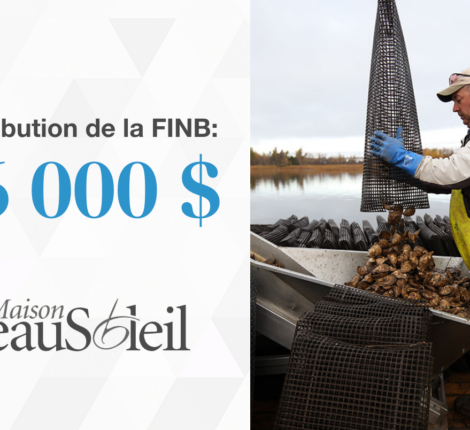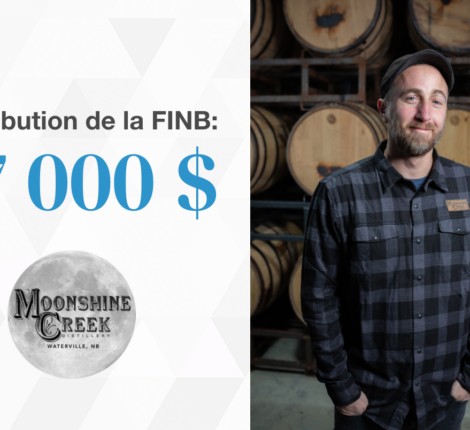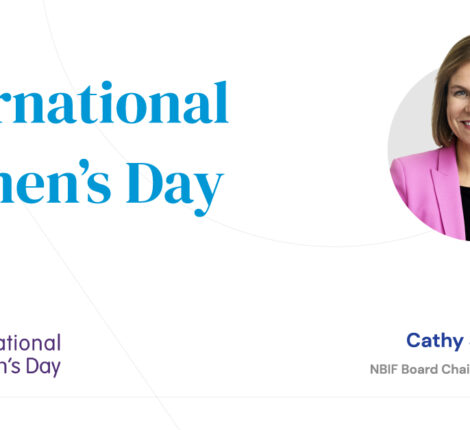- 19 mars, 2010
- Idées d'innovation
- Comments : 0
Principles: Entrepreneurial guru Guy Kawasaki keynote speaker at the New Brunswick Innovation Foundation
By John Pollack – Telegraph Journal | Link to original article
FREDERICTON – The founders of the greatest, most innovative companies started because they wanted to make something in the world better.
The first step to the art of innovation is to create meaning, entrepreneurial guru Guy Kawasaki told a packed ballroom of researchers, businesspeople and public figures at the New Brunswick Innovation Foundation’s R3 Gala Thursday night in Fredericton.
« Great companies in my experience start off with the desire to make meaning as opposed to make money, » said Kawasaki.
The Californian investor said innovative companies don’t have to come out of successful business clusters.
« It took Silicon Valley 80 years to get where it is and a lot of luck, » he told the Telegraph-Journal in the Delta Fredericton’s royal suite overlooking the St. John River, where he met with Premier Shawn Graham and the researchers being honoured at the event. « It’s certainly not the case that those clusters have a monopoly on smart people.
« What difference does it make (where you are from)? » he said, adding he hadn’t realized social media monitoring firm Radian6 is from New Brunswick before coming here. « You either provide a good service or you don’t. »
In his keynote speech the former software evangelist for Apple Inc. (NASDAQ:AAPL) shared anecdotes from his time working under company co-founder and chief executive Steve Jobs, where he helped market the first Macintosh personal computer in 1984.
Kawasaki also used his former employer, which he wrote a book about called The MacIntosh Way, as an example of his innovative principles such as « Don’t worry be crappy. »
While he doesn’t advocate poor products, he says revolutionary ones aren’t perfect when they are shipped. There’s a constant improvement process of taking feedback from customers and improving the product, which he said is necessary because customers expect upgrades, which generate future revenue.
While one group of people will hopefully love a new product, others will hate it, he said. Polarizing people is natural with almost every innovative product, because trying to please everyone is pretty much impossible and those that try end up pleasing no one, he said.
But the targeted market isn’t necessarily going to be the only group that buys the product.
« If this ever happens – step one, take the money, » he said. « Step two – find out from the people who are buying the product why they are buying it and give them more reasons. »
Kawasaki said innovators don’t look at competing in existing markets – they « jump to the next curve. »
« Most organizations stay on the same curve and die on the same curve, » he said. « Great innovation occurs not because you do something 10 per cent better (on the same curve) « ¦ it occurs because you get to the next curve. »
Companies should make a mantra instead of a mission statement, he said. Where mission statements have a long sentence that often has little real meaning and doesn’t necessarily reflect the company, a mantra – almost like a slogan – sums up a company in three words, he said. For example he said Nike’s mantra should be « Authentic Athletic Performance » or FedEx’s should be « Peace of Mind. »
His last piece of advice was not to let « bozos » get you down.
When coming up with a new innovative product, service or way of doing something, there will be plenty of people that say you are crazy and your idea will never work.
While statistically the majority of startups will fail, Kawasaki said it shouldn’t be the bozos that stop you from succeeding.
More than 15 years ago, Kawasaki was offered an opportunity to interview for a CEO position at a startup, but turned it down because the job was too far from his house and he didn’t see how it could be a business.
He estimates turning down the opportunity to run Yahoo! Inc. (NASDAQ:YHOO) in its early days cost him about $2 billion, making him a bozo.
The high-profile keynote speaker – who makes more than $40,000 per stop according to his booking agency’s website, though the New Brunswick Innovation Foundation wouldn’t confirm – spoke about his love of hockey and showed pictures from a ball hockey game he played in Fredericton Thursday morning.
The event honoured three New Brunswick researchers for their work, which all have commercial applications.
Thierry Chopin, a marine biologist at the University of New Brunswick in Saint John, works on mimicking the natural ocean environment in fish farms; Mount Allison University biologist Suzanne Currie studies how fish adapt to changes in their environment; and Université de Moncton Shippigan campus chemist Yahia Djaoued is leading work to turn a shrimp extract, often used in salmon and trout feed, into a dietary supplement safe for human consumption.


